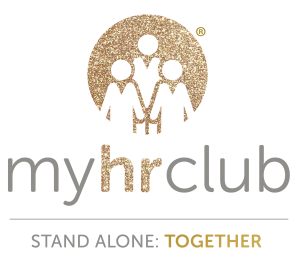
Now more than ever empathy is needed in our personal and professional relationships. Whilst empathy has always been a key quality necessary for successful managers, leaders, HR professionals and others to have – it has never been more crucial than it is now.
Even those working outside of leadership and HR roles need to embrace empathy in their dealings with co-workers. We all need to try and understand how others in our workplaces may be feeling and coping with the current work environment and how this is impacted by events in the wider world.
What is empathy in the workplace?
Empathy is extremely important in the workplace as it demonstrates true respect for your employees and co-workers – showing them that you understand their situation and their feelings and that you care about them and their wellbeing.
In the workplace, this allows you to establish true, genuine connections with others that enhance productivity, motivation and company culture. Not only can empathy be the foundation of strong, healthy working relationships, but it can also allow us to enhance our other skills such as communication and listening, perspective-taking, compassion, problem solving and more.
It should be stressed that, while it can be easy to mix the two up, empathy and compassion are not the same things. Empathy involves relating to and understanding someone’s feelings, whilst sympathy is feeling pity or sorrow for someone without truly understanding their situation and how they feel.
How has Covid increased the need for empathy at work?
The pandemic has been a very challenging time for everyone, especially businesses and their employees. Businesses have been forced almost overnight to adapt in order to continue to operate and keep their employees safe, whilst huge swathes of the workforce have been forced to adapt to home working rapidly out of the blue – not knowing when they could return to their offices – or if they ever will.
During these uncertain times it is very normal to feel lost, lonely and lacking motivation for a lot of different reasons, no matter your seniority or personal situation.

Therefore, practising empathy in leadership is not only a key requirement for allowing you to properly support employees who are reaching out – but can also allow you to be able to reach out to someone in your workplace if necessary. Doing so could help you to feel less lonely and more supported with any problems or issues you’re facing.
On top of the obvious personal benefits of being able to share anxieties and problems with co-workers/employees, it should also be seen as a chance to lead by example and demonstrate to your employees that you and your organisation are not just saying you are empathetic – but you truly are, and that people can and should safely share their issues and they will be understood and listened to.
It has never been more important to be there for yourself and others, whether this is just listening to an employee when they need it or checking up on someone proactively. In a continuously challenging environment, it is important to not feel alone and to reach out because there will always be someone who needs help or can support you – and to ensure your employees and co-workers also share this feeling.
Tips to demonstrate empathy
- Acknowledge the pain of others and try to understand how they feel
- Express your own feelings and emotions
- Engage with those who are struggling and need support
- Encourage others to both open up and listen
- Be supportive of others
How can you develop your empathetic leadership style?
- Actively try to recognise different views and perspectives
- Be self-aware of your behaviour and words
- Be compassionate
- Be authentic
- Truly listen and reflect to what others say to you
- Be fully present and engaged when listening to people
- Leave judgment behind
- Take a personal interest in others
- Try and work out solutions rather than being dismissive
- Show trust in your employees
My HR Hub can support you and your company with wellbeing and support programmes, for more information, please contact hello@myhrhub.co.uk


Recent Comments